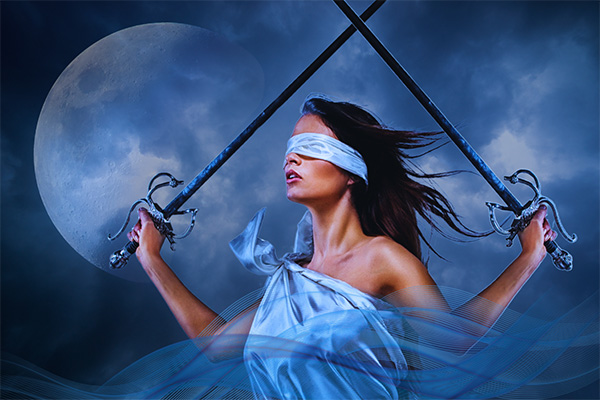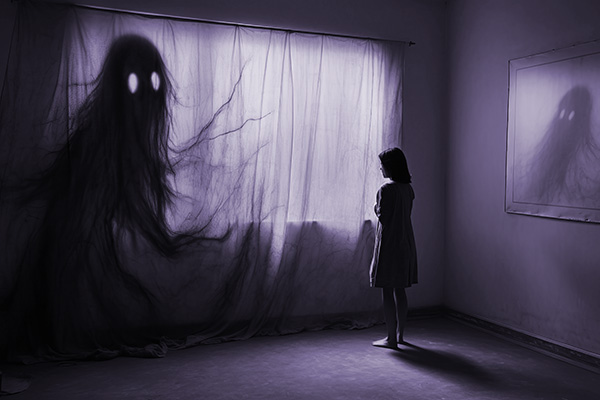inner conflict
Tarot Forecast April 2025: Five Of Wands
 The Five of Wands sets a confrontational tone this month, predicting energies of challenge, competition, and inner or outer conflict.
The Five of Wands sets a confrontational tone this month, predicting energies of challenge, competition, and inner or outer conflict.
But don’t be alarmed by the mayhem and drama it implies — this is not a card of disaster. Rather, it’s a reminder that the most meaningful growth often comes from pushing through obstacles, navigating differences, and finding our unique voice amidst the chaos and discord.
The Five of Wands represents differences that are not insurmountable, but rather opportunities for growth through constructive conflict. You may find yourself in situations where differing opinions, clashing ideas, or rivalries take center stage.
While these moments may feel chaotic at first, they have the potential to lead to breakthroughs and innovative solutions. Embrace the chaos as an opportunity to sharpen your skills and prove your resilience.
In the coming weeks you may experience moments of intensity, whether in your relationships, your career or your personal life. But this energy also urges you to rise above, to think creatively, and to remain adaptable.
While this card does not promise smooth sailing, its message is one of growth through resilience. By maintaining balance, addressing conflict head-on, and remaining open to collaboration, you can turn this month’s challenges into stepping stones to success. It’s a time to fully engage, adapt, and emerge stronger on the other side.
Tarot Forecast January 2025: Two Of Swords
 This month the energy of the Two of Swords takes center stage. It is a card of indecision, stalemate, reflection, and difficult choices, potentially predicting that we may face uncertainty, difficult decisions and the need for introspection as we move into the New Year.
This month the energy of the Two of Swords takes center stage. It is a card of indecision, stalemate, reflection, and difficult choices, potentially predicting that we may face uncertainty, difficult decisions and the need for introspection as we move into the New Year.
The Two of Swords represents moments in life when we find ourselves at a crossroads, weighing options and feeling the need to pause before making an important decision. It often comes up in readings when there is a stalemate or dead-end situation where no progress can be made until a decision is made or some action is taken.
The Two of Swords depicts a blindfolded figure sitting by a still body of water holding two crossed swords. The blindfold symbolizes the inability or unwillingness to see the whole picture or face a choice. The crossed swords signify inner conflict or conflicting choices, while the water in the background suggests the emotional undercurrents influencing the situation.
Traditionally, the Moon also appears in the card, representing uncertainty, mystery, and the unknown. Together, these symbols paint a picture of introspection, duality, and the need to find clarity and balance.
The card signifies the need to balance opposing forces or ideas. It emphasizes the importance of finding balance in a challenging situation. It can also represent emotional turmoil or an inability to reconcile conflicting aspects of a situation.
The Two of Swords encourages us to seek clarity, face challenges head-on, and strive for balance in our choices and decisions. It reminds us that avoiding a problem won’t make it go away; instead, it’s important to face it with a clear mind and an open heart.
How To Embrace Your Shadow Self
 Most people tend to shy away from acknowledging their dark or “shadow” side when it comes to spirituality.
Most people tend to shy away from acknowledging their dark or “shadow” side when it comes to spirituality.
In fact, the tendency to avoid the uncomfortable aspects of the self is due in large part to our religious or spiritual background. Throughout history, most traditions have encouraged people to suppress, deny, or transcend their human flaws and shortcomings in favor of higher ideals such as purity, salvation, or enlightenment.
This reluctance to face the shadow within continues to this day, with modern spiritual and metaphysical communities often favoring light, love, and positivity while largely ignoring the messy, difficult, and painful aspects of the human experience.
But by avoiding the shadow within, we deny ourselves the opportunity for a deeper understanding of our soul’s purpose and untapped possibilities for personal and spiritual growth.
According to Carl Jung, the famous Swiss psychiatrist who pioneered the concept of the “shadow” in psychology, “one is not enlightened by imagining figures of light, but by making the darkness conscious.” Enlightenment isn’t about avoiding the shadow. Instead, it’s about facing it and integrating it into our being.
When we face the shadow within, we reclaim parts of ourselves that hold immense power, creativity, and insight. By delving into the deeper truths of our shadow selves, we can unravel the unconscious patterns that dictate our lives, allowing for true healing, transformation, and enlightenment.
Overcoming Your Inner Saboteur
 Have you ever wondered why people sometimes try to ruin an ideal opportunity in their life, or deliberately sabotage a promising relationship?
Have you ever wondered why people sometimes try to ruin an ideal opportunity in their life, or deliberately sabotage a promising relationship?
Even though I have done thousands of readings over the years, I cannot help but still be surprised when I work with people who are in the process of sabotaging a wonderful relationship or alienating a loving, caring partner. Reading for people of all ages and walks of life around the world has shown me that this behavior is relatively common.
Not all psychic readings are about difficult relationships, difficult or cheating partners, or boring marriages. Sometimes they are about perfectly wonderful relationships that one of the partners is doing their best to destroy!
In these relationships, the saboteur consciously or unconsciously creates a toxic scenario or behaves in a dysfunctional way that will ultimately lead to a breakup. For example, the saboteur will begin to find fault with their partner, subtly push them away, or find reasons to walk away from the commitment.
Relationship readings for self-saboteurs often begin with them saying something like: “Well, things are rosy now, but they always start out that way,” or “Knowing my luck, she’ll soon get bored with me,” or “To be honest, things are so good with him, I’m just waiting for the other shoe to drop!”
It reminds me of my grandmother, who was abandoned by my grandfather when my mother and her sister were very young. She used to say, “All men are gorillas!” I later realized that my mother had adopted the same mindset.
Tarot Forecast June 2024: The Lovers
 This month the universe presents us with the The Lovers. This Major Arcana card predicts the energies of passion, choice, connection and relationships as the tone for the month ahead. The primary energies this month are harmony, balance and unity. The Lovers card represents a time of deep connection and self-discovery with yourself and others.
This month the universe presents us with the The Lovers. This Major Arcana card predicts the energies of passion, choice, connection and relationships as the tone for the month ahead. The primary energies this month are harmony, balance and unity. The Lovers card represents a time of deep connection and self-discovery with yourself and others.
The Lovers card is rich in symbolism, encompassing themes of connection, choice, and duality. It can represent romantic relationships, partnerships, or a harmonious balance between different aspects of the self.
This card usually symbolizes deep emotional bonds, love, and harmony in romantic relationships. It can signify the beginning of a new relationship, the deepening of an existing one, or the reconciliation of differences. It also represents the magnetic attraction and chemistry between lovers.
The Lovers card sometimes indicates instead an important choice or decision to be made. It emphasizes the importance of making choices that are consistent with one’s true self and values.
It can also represent moral dilemmas or ethical choices, encouraging us to follow our moral compass and make decisions based on integrity and truth. It can be a call to evaluate and realign with personal beliefs and values.
It also suggests duality and the balance between two forces, whether masculine and feminine, conscious and unconscious, or different aspects of one’s personality. It emphasizes the need for harmony and balance in relationships and within oneself. It’s about finding a balance between desires and responsibilities, emotions and intellect.
The Ancient Wisdom Of The Two Wolves
 The story of the Two Wolves holds a special place among my childhood favorites. The moral of this Native American wisdom tale, thought to have originated with the Cherokee tribe, serves as a daily guiding light in my life.
The story of the Two Wolves holds a special place among my childhood favorites. The moral of this Native American wisdom tale, thought to have originated with the Cherokee tribe, serves as a daily guiding light in my life.
I must confess, there is some sentimental bias on my part, as this story also brings back lovely memories of my remarkable grandfather, Sequoia, a former medicine man and chief of the Cherokee Nation.
Variations of the story exist in various Native American cultures, and it typically goes like this:
One evening, an old Cherokee is teaching his granddaughter about life and says, “My daughter, a fight is going on inside all of us each day. It is the battle between the two wolves.”
“One wolf is evil — anger, envy, jealousy, sorrow, regret, greed, arrogance, self-pity, guilt, resentment, inferiority, lies, false pride, superiority, and ego. The other wolf is good — joy, peace, love, hope, serenity, humility, kindness, benevolence, empathy, generosity, truth, compassion, and faith.”
The granddaughter thinks about it for a minute and then asks her grandfather, “Which wolf will win?”
The Constant Battle Of Head Versus Heart
 Have you ever second-guessed yourself, done or said something that went against your gut, only to realize in retrospect that your initial feeling or hunch was right? Had you acted differently, it could have saved you a lot of heartache and loss, emotionally, physically or financially?
Have you ever second-guessed yourself, done or said something that went against your gut, only to realize in retrospect that your initial feeling or hunch was right? Had you acted differently, it could have saved you a lot of heartache and loss, emotionally, physically or financially?
If you have ever been in this position, know that you are not alone. The “head versus heart” dilemma can be very confusing and frustrating. Many of my clients struggle with it and some experience a great deal of confusion, stress and emotional discomfort as a result.
When faced with difficult decisions or challenging situations, we usually have a good sense of what the best course of action might be. But then we tend to look for concrete evidence to support our feelings and intuitive hunches, and when we cannot find any, which is often the case, our heads take precedence over our hearts. So we end up discounting our feelings and intuitions, usually to our own detriment.
The struggle between head and heart is a common theme in philosophy, literature, art, and popular culture, as we all regularly experience inner conflicts between reason and emotion, logic and intuition, responsibility and passion.